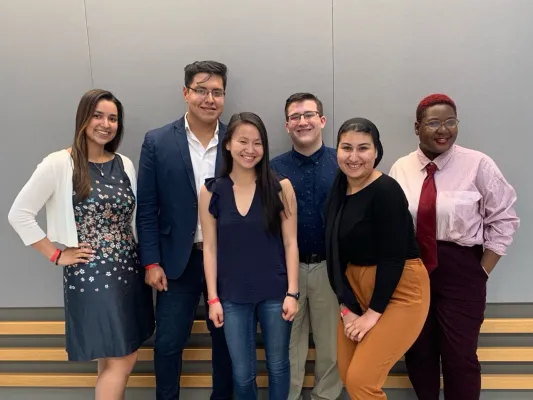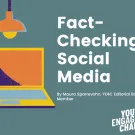This resource discusses the benefits of social media and provides tips on how to use social media in to support your mental health. Advice in this tip sheet was gathered from a diverse group of youth1 who use social media, are advocates for promoting positive youth mental health, and who participated in the Social Media and Youth Mental Health meeting at the Substance Abuse and Mental Health Services Administration (SAMHSA) on July 11, 2019. (SAMHSA is a division of the U.S. Department of Health and Human Services).
Benefits of Social Media
There are many positives to using social media, including social support, connecting with others in a meaningful way, and seeking out information. Here are some benefits to using social media:
- By reaching out to like-minded people on social media, you can grow your social support network of peers and find help with making personal decisions and forming opinions.
- Connecting with others on social media can help decrease feelings of isolation.
- Using social media can help you explore your interests and personal identity. It can give you opportunities to try out new hobbies, develop skills, and explore your passions such as artistic, academic, or advocacy interests.
- Social media can help you stay connected with friends who live far away and connect you to new people who share similar interests, while also allowing you to learn from those who have different perspectives.
- Being active on social media can help with developing your personal and professional skills, such as participating in advocacy and leadership efforts, finding internships and job opportunities, and applying to school.
Tips on Healthy Social Media Use
While there are many positives to social media use, there can also be harmful experiences, such as online bullying, harassment, and feeling inadequate when comparing yourself to the “online life” of those you follow. Here are a few ways that you can limit your exposure to negative content and comments on social media, and practice mindfulness to help support your mental health:
- Take breaks. Take breaks from social media, including deactivating social media accounts, setting limits on your follower count, and archiving or changing privacy settings on your pictures/account so that only you can see your content.
- Turn off notifications. Cut down on distractions by keeping apps on silent and/or turning off app notifications.
- Unfriend, unfollow, mute. Remove people or social media accounts who do not show you respect, and who do not make you feel good about yourself.
- Track your screen time. Learn how much time you spend on screen time, such as social media, searching the Internet, and playing games. By tracking how you spend time on your phone/social media, you can ask yourself about what is meaningful to you and what you could spend less time doing. Ironically, there may be apps to help you do this!
- Keep a balanced perspective. Balance how much time you spend online with time seeing your friends, engaging in activities, and being social in real life.
- Prioritize your time. Decide which groups (such as accounts/communities centered on ethnic, cultural, hobby, educational, linguistic, or other interests) are most important for you to participate in at one time. This may help you to better manage your time and experience on social media.
- Find the joy. Follow online communities or causes that you identify with and engage with people that make you feel seen and provide support and positivity.
See the meeting participants in action on Instagram:
- https://www.instagram.com/p/Bzy61_EAxfr/
- https://www.instagram.com/p/BzyW-BqBLUs/
- Be sure to also check out the Story Highlights labeled “MENTAL HEALTH.”
1. Youth experts included Nakiya Lynch, Ian Adams, Syeda Khaula Saad, Isaac Espinal, Maya Siegel, and Maura Sparrevohn




